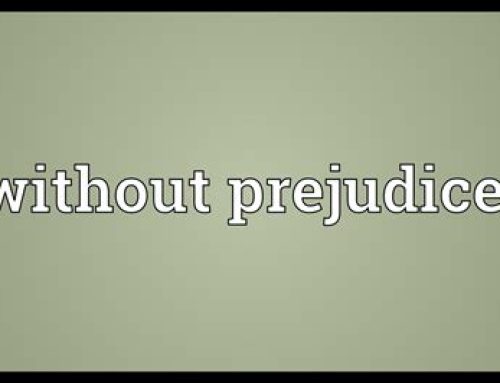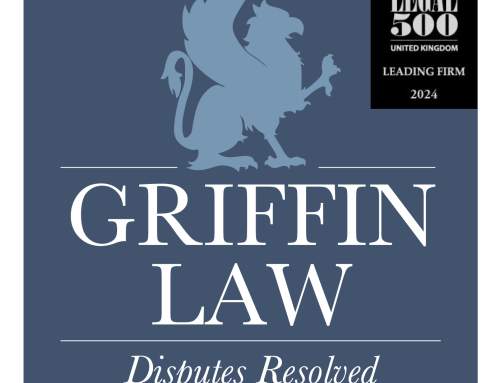In my last article, I discussed how a charitable trustee must ensure their charity exists for the public benefit, and how they risk the charity being struck from the register if they fail to demonstrate as such. In this succeeding article, I will be discussing the Trustee’s duty of Undivided Loyalty.
This duty stipulates that all charity trustees occupy a position that demands high standards of trust and confidence beyond simple honesty and good faith.
This duty has two components. First, ‘the No Conflict’ Rule.
The No-Conflict Rule
A trustee must not place themselves in a position where they may have an interest that conflicts with their duty as a charity trustee. The two common types of conflict are ‘of interest’ and ‘of loyalty’.
- A conflict of interest is where a trustee has a personal financial interest in a charity-involved transaction e.g. ownership of a business the charity is contracting with.
- A conflict of loyalty is where the trustee has conflicting duties of loyalty, but this does not involve any material benefit e.g. loyalty to family.
Should the no conflict rule be breached by a trustee, they will have failed to uphold their fiduciary duties, and may be personally liable for any loss the charity suffers as a result. Furthermore, any transaction made in breach may be subject to challenge, and could be declared void by the Attorney General or Charity Commission.
However, it is possible for trustees to manage and avoid such breaches, even if they have interests or loyalties outside the charity. Some conflicts of interest can be authorized, either by an express provision in the charity’s governing document, or an order of the Charity Commission.
For the wellbeing of the charity, and the peace of mind of the trustees, it is preferable that conflicts do not arise in the first place. Practically, trustees should declare all conflicts, actual or potential, which should be recorded in a register of interest.
A declaration should occur during the trustee recruitment process. This allows the current trustees to consider whether the prospective trustee can make a proper contribution to the charity if they have to withdraw from a significant part of its work.
The seriousness of the conflict will influence the required response. The Commission’s view is that if the conflict is so serious there is no way to effectively manage it, the conflicted trustee should resign.
However, this last resort does not need to occur provided the trustees take steps to create a proper procedure to manage conflicts. This might include requiring the conflicted trustee to withdraw from relevant meetings, and be absent during relevant votes. It is wise to ask your legal advisor for specific assistance in creating a procedure to manage conflicts, and provide advice.
The No-Profit Rule
The no-profit rule stipulates that a trustee must not make profit nor receive a benefit from their position as a trustee. A ‘benefit’ is interpreted widely to mean any (direct or indirect) financial or other measurable benefit, and practically may mean a small token for acting as a trustee, compensation for loss of earnings, or even payment for usage of a trustee’s property by the charity.
If a trustee does receive a payment or other benefit, the consequences can be severe. The trustees that both permitted the payment and received a benefit may be personally liable for any loss the charity has suffered.
There are however numerous exceptions to this rule. Trustees have a right to be fully indemnified out of trust assets for all costs, charges and expenses properly incurred. These expenses might include travel costs when carrying out charity business, or communication costs incurred when serving as a trustee.
The Charity Commission advises that a formal expenses policy be adopted as part of the governing document, and that all expenses be reported in the charity accounts.
Additionally, some payments can be authorized, meaning the giving and accepting of said payment will not be considered a breach of trustee duties.
Authorization has numerous sources, the most common being those within the charity’s governing document. It is usual for provisions to include conditions and procedures for a benefit to be properly authorized.
These provisions must be consistent with the requirement that the organization may only confer personal benefits which are incidental to carrying out exclusively charitable purpose.
Authorization via governing document is however, only one of many ways in which a payment can be authorized. Other methods of authorization include via the Charity Commission or by statute in law.
At Griffin Law, we offer tailored guidance to our charitable trustee clients to ensure their actions do not breach the key duty of undivided loyalty to the charity.
Charitable Trustees and their Duties – Connected Persons
A crucial part of a Charity Trustee’s duties is the duty of undivided loyalty, informally enshrined in the rules of ‘no-profit’ and ‘no-conflict.’ The rules impose certain restrictions on trustees.
In addition, these rules are also imposed on ‘connected persons’, which are individuals that are connected to the trustee in one form or another. If a connected person is found to have breached the no-conflict or no-profit rules in regards to the trustee’s charity, the trustee they are connected with can suffer the same reprisals as described earlier.
There are many types of connected persons. In broad terms, it means the family, relatives or business partners of a trustee, as well as businesses in which the trustee has an interest, through ownership of influence.
These terms are very encompassing; ‘family’ and ‘relatives’ includes unmarried partners, grandparents, step or illegitimate children, and the spouse or civil partner of any of them. ‘Business’ includes any business where a trustee or family member hold at least a fifth of the shareholding or voting rights.
It is paramount that charity trustees, when making decisions for their charity, take into consideration not only their own conflicts of interest or profit, but those discussed above.
At Griffin Law, we can provide trustees with expert insight to determine if they are at risk from the activities of any person connected to them.
Griffin Law is a dispute resolution firm comprising innovative, proactive, tenacious and commercially-minded lawyers. We pride ourselves on our close client relationships, which are uniquely enhanced by our transparent fee guarantee and a commitment to share the risks of litigation. If you have any specific questions regarding a dispute, please email justice@griffin.law or call 01732 52 59 23.
GRIFFIN LAW – TRANSPARENT FEES. TENACIOUS LAWYERS. TRUSTED PARTNERS.
Nothing in this document constitutes any form of legal advice upon which any person can place any form of reliance of any kind whatsoever. We expressly disclaim, and you hereby irrevocably agree to waive, all or any liability of any kind whatsoever, whether in contract, tort or otherwise, to you or any other person who may read or otherwise come to learn of anything covered or referred to in this document. In the event that you wish to take any action in connection with the subject matter of this document, you should obtain legal advice before doing so.
© Griffin Law Limited, 2022. All rights reserved.





